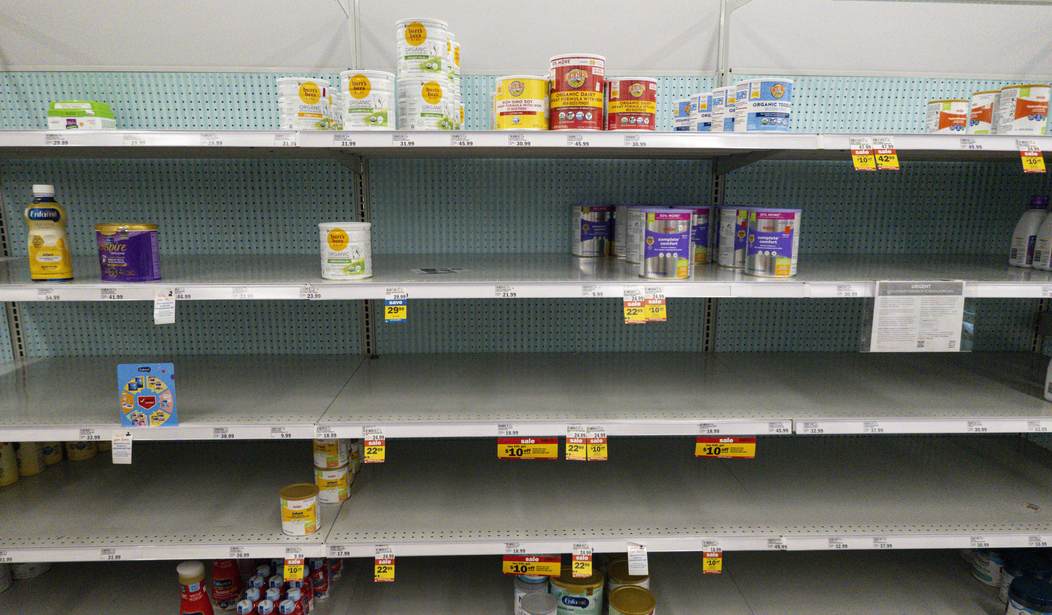One of the biggest issues driving our economic problems is the supply chain crisis. If you remember last year, we dealt with backups at ports on both coasts, and this year the baby formula shortage has highlighted problems with the supply chain (and the government’s response to it).
The prevailing wisdom is that the supply chain crisis is temporary and will resolve itself at some point in the near future. But is that the case? The CEO of a website that covers the trucking and logistics sector isn’t terribly optimistic.
Craig Fuller, CEO of FreightWaves, has written an editorial at the site explaining why he believes that the supply chain isn’t going to get much better anytime soon.
In the intro to his article, Fuller lets the cat out of the bag that “The world has permanently changed and supply chains are going to face continuing challenges for decades to come.”
One of the factors that have made the supply chain crisis longer in duration and worse in intensity is global unrest. Disruptions to the supply chain create ripples in other parts of the world, and we’re feeling the effects of events half a world away.
“Natural disasters, terrorism, economic cycles, and capacity shortages have created challenges since the beginning of trade,” Fuller writes.
Global political tensions wield a strong influence on the supply chain.
“As the United States has become more insular and has pulled back from being the world’s policeman, and China has started to flex its muscles and create a global competitor to the United States, the world has become far more unstable and less peaceful,” Fuller notes.
Labor issues are playing a role in the supply chain as well. Fuller points out that developing countries were able to become manufacturing hubs because of “cheap labor, lax environmental and labor regulations, and little regard for sustainable natural resources.” Asia’s population is aging, which cuts into that cheap labor force, and in the U.S. there’s an excess of jobs as well, which doesn’t help the problem.
Related: The Baby Formula Shortage Could Have an Effect on the Midterms
Fuller’s article isn’t a political one, but he makes an interesting point about the liberalization of corporations throughout the world. In his estimation, the growing corporate emphasis on what’s known as ESG (Environmental, Social, and Governance) requirements are hampering the global supply chain.
“This pressure means that goods that are produced in factories that don’t match Western standards for environmental controls and human rights may not be available to Western consumers,” he points out. “The factories that do produce goods that match Western standards will often be more expensive and therefore there will be less buffer stock in the system.”
Fuller then adds what looks like an indictment of this shift to more leftward-leaning concerns.
“The same ESG standards also create challenges for commodity producers, as the cost of adhering to environmental and social disclosures makes it more expensive and less productive … Environmental concerns and regulations that have prevented exploration and production and killed pipeline projects are largely the reason that the world currently lacks sufficient energy resources to buffer against the consequences of the Russia-Ukraine war.”
As for the future of the supply chain, at least here in the United States, Fuller sees trends emerging that will help ease some issues — eventually. He envisions American companies looking to source their products closer to home, which could benefit Latin America at the expense of China.
“The American South and Midwest will also see an acceleration in manufacturing and production, as they can offer predictable and resilient sourcing, without the geopolitical risks of foreign suppliers or the labor unions of the Rust Belt,” he adds.
He also believes that a concept he calls “Freedom Trading,” which I’ll analyze in a future article, will supplant the idea of free trade.
Technology will be another winner as the supply chain evolves. Automation, robotics, and intelligence systems will help companies break through the sourcing and logistics issues that are plaguing our supply chain today. He sees continued growth in “real-time market intelligence information, which has seen explosive growth in recent months as shippers have realized that supply chains are not returning to normal and the need for high-frequency data is increasingly critical for success.”
Here’s hoping that a more resilient supply chain with some changes to the status quo will help overcome the issues we’re having today and possibly prevent them in the future.










Join the conversation as a VIP Member